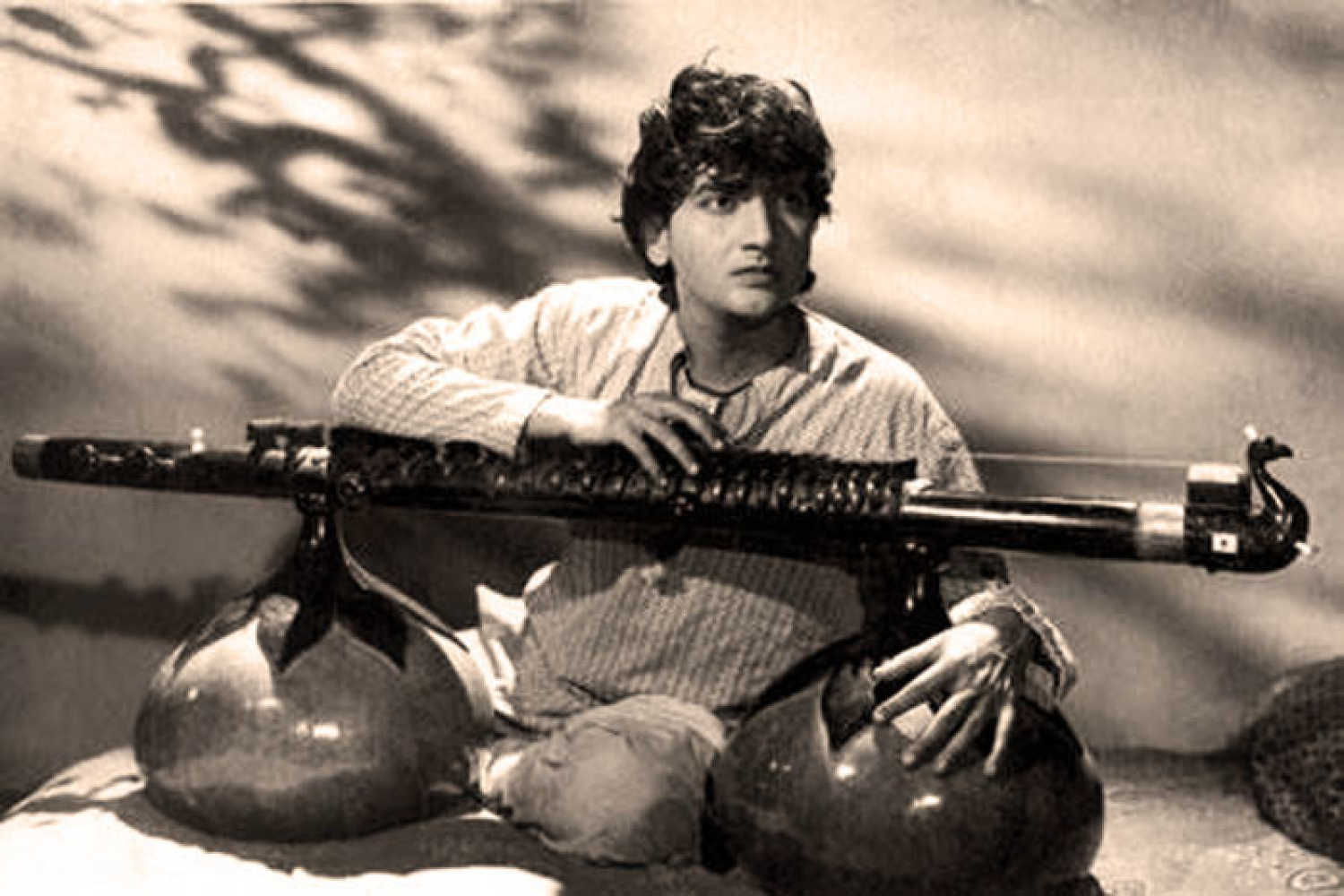Bharat Bhushan, born on 14 June 1920, carved a niche for himself in Hindi cinema by mostly portraying spiritual and sensitive characters.
The gentle charm of Bharat Bhushan – Birth centenary special
New Delhi - 14 Jun 2020 23:25 IST
Updated : 15 Jun 2020 19:24 IST


Sukhpreet Kahlon
Bharat Bhushan, one of the more distinctive actors in Hindi cinema, often played roles that complemented his quiet, gentle personality. In the 1950s, with the triumvirate of Raj Kapoor, Dilip Kumar and Dev Anand ruling the box office, Bhushan essayed roles that highlighted the spiritual and the poetic.
Bharat Bhushan Bhalla was born in Meerut near Delhi, in modern-day Uttar Pradesh, on 14 June 1920. He lost his mother at an early age and was sent to live with his maternal grandmother in Aligarh. His father was an advocate and wanted his son to follow in his footsteps. He did not approve of the new medium of cinema.
However, Bharat Bhushan was enamoured by the world of films and went off to Bombay to try his luck in Hindi cinema. He landed a role in Kidar Sharma's Chitra-Lekha (1941), the story of a famed court dancer. The film was a hit but as a newcomer, Bharat Bhushan earned a pittance for his role.
Other films followed, like Bhakta Kabir (1942), Sawan (1945) and Kidar Sharma's Sohag Raat (1948), but he remained on the fringes of stardom for a long time. It was only in 1952 that Bharat Bhushan had his big moment when he starred in Bimal Roy’s Maa, Hemen Gupta’s Anand Math and Vijay Bhatt's Baiju Bawra, the film that he is best known for.
Baiju Bawra focused on a confrontation between Tansen, the unparalleled musician in the court of the Mughal emperor Akbar played by the 1940s star Surendra, and Baiju (Bharat Bhushan), with the latter defeating him in an intense musical duel. The film became the highlight of Bharat Bhushan's career and consolidated his standing as an actor able to portray the pathos of silently suffering characters. With his sincere, quiet charm and genteel manner, he also became quite the heartthrob of fans.
Among his other notable films were Shree Chaitanya Mahaprabhu (1954), again by Vijay Bhatt, Debaki Bose's Kavi (1954), Sohrab Modi's Mirza Ghalib (1954), Phagun (1958) and Barsaat Ki Raat (1960), but Bharat Bhushan could not shake off the tag of playing serious, mostly despairing, philosophical characters. That which brought him fame and recognition also imprisoned him.
In 1992, a few of his diary entries were published by Filmfare magazine where he expressed his dismay at being typecast. In an entry marked November 1956, he wrote, 'I am getting “typed”. I am made to play saints, musicians and madmen... The stereotyped roles make it very difficult for me to give a good portrayal each time. The box office forces actors to restrict themselves to one particular type of role.'
10 passionate Bharat Bhushan songs — birth anniversary special
A simple man of simple tastes, Bharat Bhushan was happiest when with his immense collection of books, said to number around a lakh, and preferred the quiet life spent in nature. Observing the introverted nature of the star, celebrated poet and lyricist Sahir Ludhianvi, a dear friend, wrote in a column in Filmfare magazine, “He is allergic to social functions and crowds, also to suits and boots. A simple shirt, white trousers, a pair of chappals, have practically ruined his social career...”
As films veered increasingly towards glamour and action, Bharat Bhushan began to find fewer roles. In 1964, he produced the film Dooj Ka Chand, which failed miserably. He incurred heavy losses and had to sell some assets to raise money. Thereafter, he began to play smaller roles in the supporting cast. Vishwas (1969), Gomti Ke Kinare (1972), Kahani Kismat Ki (1973), Kasauti (1974), Jai Santoshi Maa (1975) and Adi Shankaracharya (1983) were some of the later films he appeared in.
In a reflection on the transient nature of stardom, Amitabh Bachchan once revealed in his blog, 'As I drove by Santa Cruz one morning for work I saw Bharat Bhushan, the great romantic heartthrob of the 1950s, hero of some of the most successful musicals of the times, standing in a queue at a bus stop! An ordinary citizen. Part of the crowd. Alone, unnoticed. No one recognizing him. No one knowing who he was.
'I wanted to stop and ask him into the car to drop him to his destination, but I could not muster enough courage. I feared I would embarrass him. And I drove on. But that visual has remained with me and will remain with me forever. It could happen to anyone. To anyone of us.'
Having witnessed many ups and downs in life, Bharat Bhushan died on 27 January 1992. He remains a rare actor in Hindi cinema, a man who could portray his characters with sensitivity, lighting up the screen with his gentle charm.
Film historian Iqbal Rizvi contributed to this article with research material and insights.



